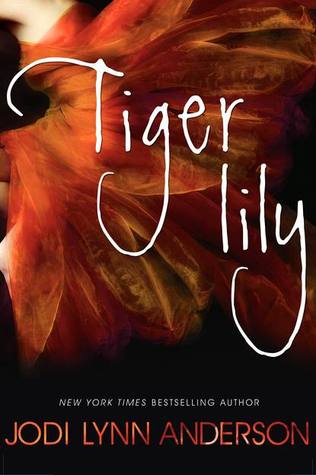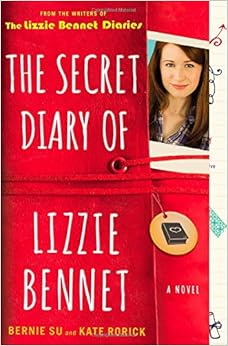 A popular YA novel considered "under-rated" but still well-loved by many of my favorite YA bloggers, I can definitely understand - after having read the novel - how it generates so many conflicting opinions in its audience.
A popular YA novel considered "under-rated" but still well-loved by many of my favorite YA bloggers, I can definitely understand - after having read the novel - how it generates so many conflicting opinions in its audience.
I was actually just thinking about
Revisionism -
the literary practice of subverting a previously established story line or character for greater emphasis from a different point of view, basically revising a story to tell a different story - recently, in terms of its ties to the Feminist movements during the Early Twentieth Century.
I presented the genre as a part of a half-hour presentation I had to give in this past quarter's English 336 class, and the topic really stuck out in my head (mainly because my group partner and I kept arguing about whether something like
Wide Sargasso Sea - the story of Bertha Mason from
Jane Eyre, written by Jean Rhys in 1966 - was comparable to more ground-level works, like fanfiction). During this time period, Revisionism was used to give women greater voice in writing, by
allowing them to speak up for women in fiction who might have remained voiceless.
Similarly,
Tiger Lily, by Jodi Lynn Anderson, finds itself subverting the familiar stories and characters of Neverland, to better contrast
gender role norms, conventional femininity, racial relations, and
imperialism, while also touching on topics like
sexual assault and
suicide. Ironically, the one doing the talking this time 'round, has been famously voiceless in most iterations of the tale: the fairy, Tinker Bell.
The novel follows its titular character,
a quiet, mannish young orphan feared by her tribe, but adopted by the shaman, Tik Tok, as she stumbles across one dangerous secret after another on the island of Neverland, from a Englander stranded on its banks, to the mysterious boy in the forest her tribe tells her to fear. Her
new-found friendship with the enigma that is Peter Pan could shatter the fragile peace treaty her village keeps with the nearby pirates, and soon the crow-feather girl finds herself dreaming of a life outside the one she's always known... an illusion shattered by the arrival of yet another English vessel, this one bearing
a yellow-haired girl, named Wendy.
The story itself is
well-written and accomplishes the task of treading its own footprints in a much-traversed landscape: Neverland as seen through unexplored eyes, from the point of view of the oft-seen, but never-heard mute fairy. Tinker Bell proved to be a completely capable and interesting choice of narrator, being that as someone who couldn't speak otherwise, was deeply in tune with the emotions and thoughts of those around her; most particularly, the stoic, reserved Native girl with whom she develops a deep bond.
That being said, the word "Native" is never used; the Natives are only delineated by words like "village" or "tribe." In terms of the depictions of said customs and traditions - clearly taken after Native American heritage, like the original J.M. Barrie novel - I don't know,
I felt like Anderson did a half-okay job. She had to have done at least a little research to understand the complexity of the status of "two-spirit" personhood (represented in the characterization of Tik Tok), and I thought that the parts of the narrative dealing with imperialism - with the villagers fearing catching disease from the Englanders, and the ideas of religion that man brings to the village - were handled true to history.
However, you don't grow up next to the Puyallup Reservation your whole life without knowing that
taking on issues of Native American race, even one that isn't prescribed to a particular tribe, is a tricky business. I felt it was accomplished with an intermediate degree of success, with major points docked for names like "Bear Claw" and "Stone," and the undefined and indeterminate nature of the transmigration of the English language learned by the various villages (as taught by the Englanders).
(You can find an interesting perspective from
a Native American blogger on the subject here.)
With the veritable laundry list of contemporary cultural pressure points listed near the beginning of this blog post being among its hot button issues, it should come as no surprise that
the novel gets its strengths from its emotional core, the depths of the contrasts in gender roles, and divisions between the villagers versus the Lost Boys and pirates, ringing home the most. However, in some key territories, the narrative steers a little close to being preachy or heavy-handed, where the text almost screams the injustice at you in a way that isn't even thought-provoking, just obvious.
The subtleties present within the work are much more poignant than the glaring "teachable" moments.
Furthermore, the book was advertised to me by its fanbase as being a book that would make you cry, and I can understand where they were coming from, but the novel didn't ever bring me even close to tears. If anything,
the novel is dark and hard to choke down in parts, due to the explicitly depicted pain the characters are going through, but it made me wince, not cry.
Final Verdict: Tiger Lily gets its power from an emotionally-driven narrative that
provides a series of jumping-off points for further discussion and contemplation of serious topics for today's young adult readers, as well as questions the implicit nature of a coming-of-age story, as told about a girl who never grew up. Revisionism, indeed.













